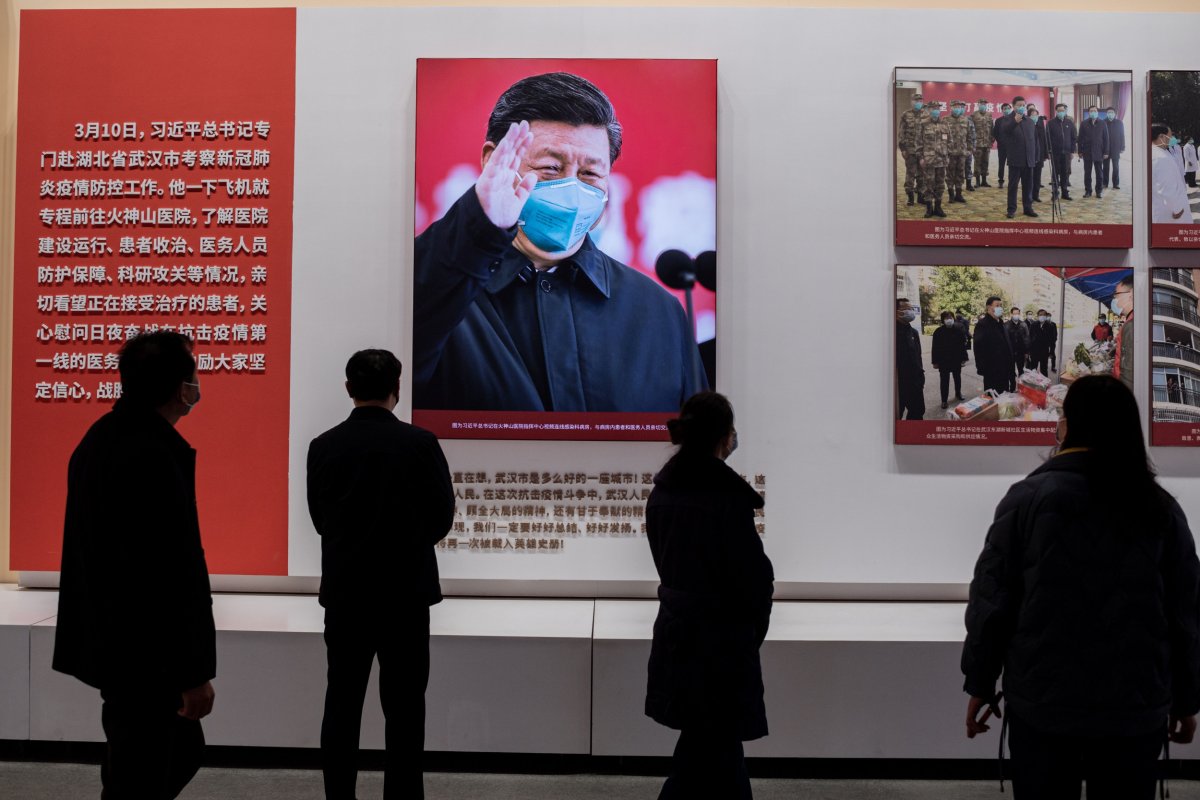The international scientific community must aggressively challenge China on the truth behind the "mysterious" origins of COVID-19, the Washington Post editorial board wrote Monday, warning of the dire repercussions a Beijing cover-up may have for future pandemics.
The Washington Post editorial board published an opinion piece Monday which demands an independent investigation of the coronavirus origins more than one year since it's outbreak in the United States. On Thursday, scientists from multiple U.S. and European universities published an open letter published first in The Wall Street Journal, which calls for an extensive probe into whether a Chinese lab accident was the original cause of the SARS-CoV-2 pandemic. The board demanded a new inquiry separate from the World Health Organization (WHO) to look into the possibility that a "zoonotic spillover," or animal-to-human transmission, was the original cause of the ongoing global pandemic, which has left more than 2.5 million dead.
Instead of "blame throwing" and "political heat" dominating the discussion of how COVID-19 started, the board said, it's time to start the investigation over and nail down the real spark that set off the deadly pandemic.
Last month, WHO investigators determined it was "extremely unlikely"—but not impossible—that a Chinese laboratory accident was the root cause of the pandemic. Beijing officials seized on the report to vindicate China from U.S. accusations that they covered up the truth behind what started the virus spread. Former U.S. Secretary of State Mike Pompeo insists the WHO is "corrupt" and that last month's report was a direct result of Chinese Communist Party influence.
"The WHO, a membership organization, lacks the powers to pry open closed doors in China, and there is not another good alternative," the Post editorial board wrote Monday. "As the 26 scientists point out in their letter, the team lacked the training and forensic skills required to investigate this possibility. They were under strong pressure from China to steer clear of the subject altogether."
The opinion piece highlights several Chinese "gain of function" experiments which were being conducted right about the time that the pandemic started in late 2019. The board cited Wuhan Institute of Virology senior researcher Shi Zhengli's attempts to modify viral genomes through animal testing as a potential root cause of the laboratory leak or accident.
"Could a worker have gotten infected or inadvertent leakage have touched off the outbreak in Wuhan?" the board asked. "What's needed is an independent, multidisciplinary and unfettered investigation into the origins of the outbreak, both the zoonotic and laboratory hypotheses. China's obduracy is not going away."
The open letter from scientists published last week calls for a "full and unrestricted international forensic investigation into the origins of COVID-19." Their analysis concluded that "there is as yet no evidence demonstrating a fully natural origin of this virus. The zoonosis hypothesis, largely based on patterns of previous zoonosis events, is only one of a number of possible SARS-CoV-2 origins, alongside the research-related accident hypothesis.
Newsweek reached out to Chinese embassy officials in Washington, D.C., for additional remarks or reaction to the Post editorial piece Monday afternoon.

Uncommon Knowledge
Newsweek is committed to challenging conventional wisdom and finding connections in the search for common ground.
Newsweek is committed to challenging conventional wisdom and finding connections in the search for common ground.
About the writer
Benjamin Fearnow is a reporter based out of Newsweek's New York City offices. He was previously at CBS and Mediaite ... Read more
To read how Newsweek uses AI as a newsroom tool, Click here.








